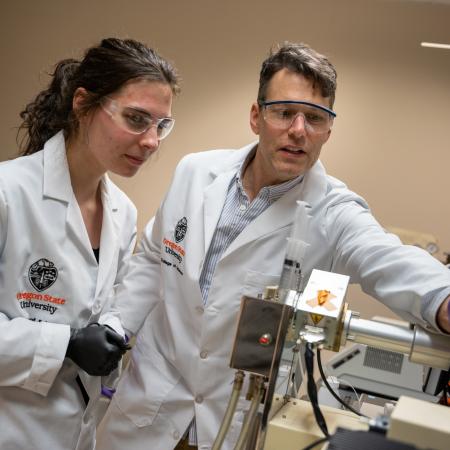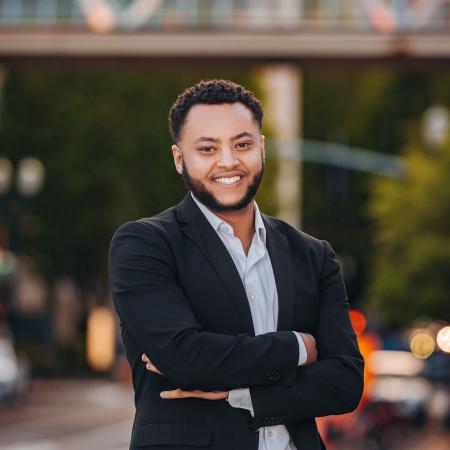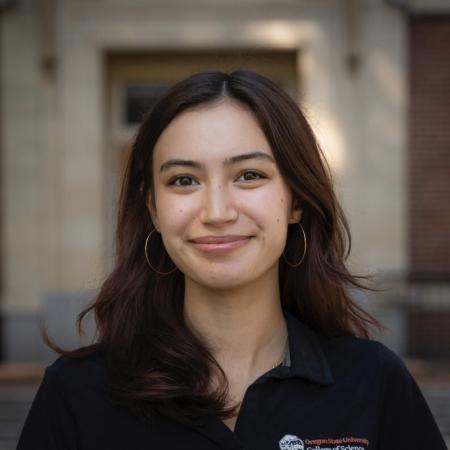The biochemistry and biophysics department represents a diverse range of research interests, from cell biology to molecular biophysics. We are well aware that when starting graduate school, most students will not have been exposed to all potential research topics and want to provide every grad student a chance to determine which research area and mentorship style is the best fit for them. Our department offers a unique opportunity to "try out" laboratories and, similarly, allows labs to evaluate prospective students.
Lab Rotations
Finding your perfect fit
Lab Rotations
Finding your perfect fit
What to expect from rotations
Each student completes three term-long rotations in their first nine months at OSU. Rotations should be generally agreed on or planned by the beginning of fall term, but changes are allowed. Faculty members run their laboratories in distinctive ways. Labs may be large with many postdoctoral research associates, technicians and/or undergraduate students, or they may be smaller with primarily graduate students responsible for much of the research in the lab. The mentoring professor may be intimately involved in all aspects of research and may actually work in the laboratory, or may be more distant from the lab, primarily functioning to define the broader research goals of the lab and raise funding. One important component of finding a mentor and lab for thesis research is how well students mesh with the people in the lab.
Your responsibilities
The most successful lab rotations occur when students maintain good communication with the professor. Students need to find out what they are expected to accomplish during the rotation, and by what standards their performance will be judged. This topic should be discussed with the professor even though rotation students are often directly supervised by a postdoctoral associate or a senior graduate student. In these situations, it is in the student’s best interest to clarify the chain of communication and responsibility. Students should also try to learn as much about all the different currently ongoing research projects in the lab. This generally requires communication with all members of the research group, as well as attendance of all group meetings or journal clubs held by the laboratory.
Faculty responsibilities
At the end of a student rotation, professors are required to complete a form evaluating the student's performance. This evaluation is discussed with the student and the form is signed by the professor and the student. Evaluations become part of the student's record and are considered during the general evaluation of each student at the end of their first year in the department.



